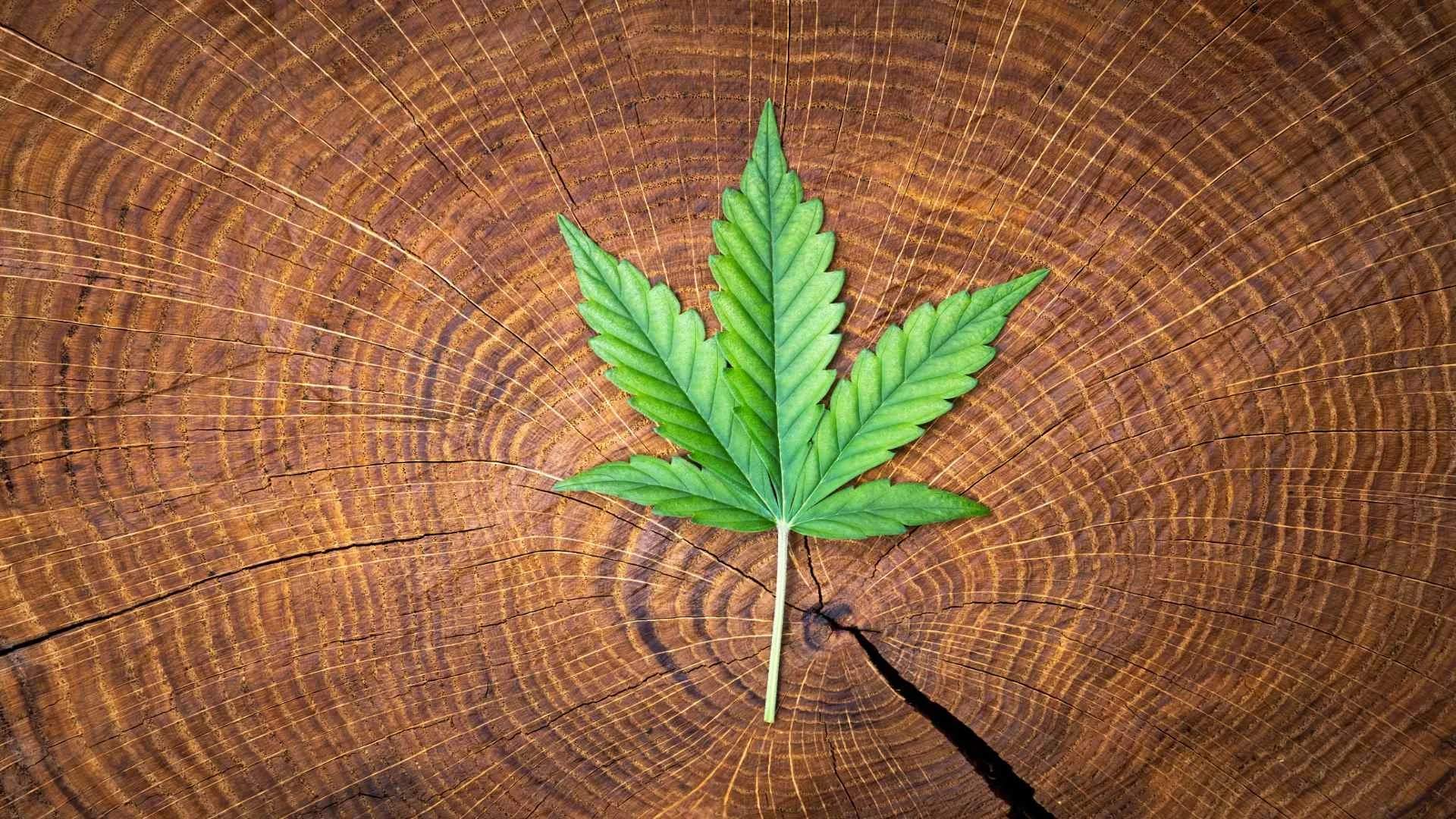Drug and Alcohol
The Life-Changing Benefits of Quitting Weed

Discover the powerful benefits of quitting weed, from improved mental clarity and physical health to stronger relationships and a focused, fulfilling life.
What benefits will I notice right away after quitting weed?
You may experience clearer thinking, improved sleep quality, and greater emotional awareness within just a few days. Many people feel more focused, present, and energized shortly after quitting, which can boost motivation and confidence in early recovery.
How long do withdrawal symptoms last when quitting weed?
Withdrawal symptoms typically begin within 1 to 3 days of quitting, peak around days 3 to 7, and gradually taper off over 2 to 3 weeks. Symptoms vary in intensity, but support and healthy routines can help ease the discomfort.
Is quitting "cold turkey" better than tapering off?
It depends on the person. Some find success quitting cold turkey, but this method can trigger stronger withdrawal. Tapering may reduce symptoms. A supportive treatment plan helps you choose the safest and most effective approach based on your specific needs.
Can quitting weed improve my mental health?
Yes—quitting weed often leads to lower anxiety, fewer depressive symptoms, and greater emotional balance. Many report better mood stability, increased motivation, and improved ability to handle stress after quitting marijuana for good.
Do I need professional help to quit weed?
While some succeed on their own, professional help can significantly improve your chances. Treatment provides support for managing withdrawal, building healthy habits, and addressing co-occurring mental health issues that may contribute to marijuana use.
Weed may seem like a way to relax or cope, but over time, it can take a quiet toll on your mind, body, and relationships. You may notice symptoms such as brain fog, low motivation, mood swings, or a growing distance from the people you care about.
These effects often build slowly, leaving you feeling stuck or disconnected from the life you truly want. The good news is that change is possible. The benefits of quitting weed are fundamental and far-reaching—from clearer thinking and improved health to stronger emotional connections and a renewed sense of purpose.
The Problem: What Chronic Marijuana Use Can Cost You

While marijuana is often perceived as a mild or even harmless substance, long-term use can lead to a range of physical, mental, and emotional issues. Chronic use may not always appear destructive at first, but its effects can accumulate slowly and impact your daily life more than you might expect.
Cognitive Impairment
One of the most reported effects is cognitive impairment. Marijuana can dull your ability to concentrate, remember information, and think clearly.
Many long-term users describe living in a state of constant confusion—one that affects their work, relationships, and ability to make decisions. Over time, this mental haze can lead to poor academic or professional performance and missed opportunities.
Physical Health Decline
Physically, marijuana can take a toll on your lungs and cardiovascular system, especially when smoked. You may notice shortness of breath, frequent coughing, or a decline in stamina.
Sleep patterns are also disrupted, despite the myth that weed helps with rest. While it might seem to make falling asleep easier, it interferes with REM sleep—the deep stage that allows your brain to reset and restore.
Emotional and Social Impact
Emotionally and socially, the cost can be even greater. Prolonged use has been linked to increased anxiety, depression, and mood swings.
Socially, you may drift away from loved ones or become isolated. Some people find themselves stuck in cycles of avoidance, using marijuana to escape instead of facing challenges.
Why It’s Hard to Quit Alone
Deciding to quit weed is a courageous step, but it can be challenging to do on your own. Many people underestimate how dependent they’ve become until they try to stop.
Unlike substances that cause immediate physical withdrawal, marijuana withdrawal is more subtle—but still very real.
Withdrawal Symptoms
You might experience irritability, insomnia, anxiety, loss of appetite, or intense cravings. These symptoms can begin just one or two days after quitting and may persist for several weeks. This discomfort often leads people to relapse, even if they genuinely want to stop.
Emotional Attachment
Another challenge is the emotional attachment to weed. It might be your coping mechanism for stress, trauma, or boredom. Letting go of it can feel like losing a source of comfort, even if it’s causing harm.
Social Environment
There’s also a social component to consider. You might be part of a friend group where marijuana use is normalized. Trying to quit in that environment can feel isolating and unsupported.
At The Edge Treatment Center, we understand these challenges. We’ve seen how quitting without guidance often leads to frustration or relapse. That’s why we offer structured, compassionate support designed to help you succeed.

We’re Here To Help You Find Your Way
Would you like more information about mental health or drug addiction? Reach out today.
Solution: Real Benefits of Quitting Weed

Quitting marijuana can open the door to a healthier, more fulfilling life. While the process isn’t always easy, the benefits are well worth the effort. Here are some of the most profound changes people experience after they stop using weed:
Clarity and Cognitive Recovery
One of the first and most noticeable benefits of quitting weed is improved mental clarity. The brain fog that once dulled your focus begins to lift.
It is easier to stay attentive, complete tasks, and retain information. This cognitive rebound can boost your confidence and performance in both academic and professional settings.
Mental and Emotional Stability
Marijuana can intensify feelings of anxiety and depression, particularly in those already vulnerable to these conditions. When you stop using, many emotional symptoms begin to level out.
People often report feeling more emotionally balanced, less irritable, and more in control of their mood. These improvements make it easier to build resilience and handle stress in healthier ways.
Physical Wellness
The physical benefits of quitting weed are also significant. Your lungs begin to recover, especially if you previously smoked marijuana. Breathing becomes easier, and chronic coughing tends to disappear.
Many people also experience better sleep after the initial withdrawal period. Without marijuana interfering with REM cycles, your sleep becomes deeper and more restorative.
You might also notice increased energy and motivation. Without the sedative effects of weed, it’s easier to get up in the morning, stay active, and engage in physical activity.
Social and Relationship Repair
Quitting weed often improves your relationships. As your mood stabilizes and you become more emotionally present, your connections with friends and family tend to strengthen. You’re more engaged, more communicative, and more available—both emotionally and physically.
Recovery also allows you to break free from unhealthy social circles or routines centered around marijuana use. This makes room for healthier relationships and new, positive influences.
Financial and Functional Gains
Marijuana isn’t free. Over time, the cost of regular use adds up. Quitting can bring immediate financial relief, freeing up money for essentials, hobbies, or savings.
You’ll also gain time. Many people don’t realize how much time they spend getting high or recovering from it. Quitting gives you back those hours, allowing for greater productivity and a better work-life balance.
Long-Term Growth and Self-Esteem
Recovery brings with it a renewed sense of pride and self-worth. You’re no longer reliant on a substance to manage life. Instead, you’re building coping skills, strengthening your identity, and making conscious choices for your well-being. That empowerment fuels long-term success.
How The Edge Treatment Center Helps You Succeed

At The Edge Treatment Center, we know that every person’s journey is different. That’s why we create personalized treatment plans tailored to your specific needs, challenges, and goals.
We provide compassionate, evidence-based care that addresses both marijuana use and any co-occurring mental health concerns.
Cognitive-Behavioral Therapy (CBT)
Cognitive-behavioral therapy helps you identify and change thought patterns and behaviors that contribute to marijuana use. You'll learn how to recognize triggers, challenge negative thinking patterns, and develop healthier habits that support long-term recovery.
Motivational Enhancement Therapy (MET)
Motivational enhancement therapy focuses on strengthening your internal motivation to change. Instead of pushing you to quit, this therapy helps you explore the reasons behind your desire for a better life. It empowers you to set goals, build confidence, and take meaningful steps toward recovery.
Group Support
Group support connects you with others who are also on the path to recovery. In a group setting, you can share your experiences, gain encouragement, and feel less alone in the process. This sense of community is often a vital part of staying committed to sobriety.
Together, these therapies provide a well-rounded foundation for recovery. They not only help you stop using marijuana—they help you build a life you want to stay sober for.
Comprehensive Support and Long-Term Success
We also support you through the withdrawal phase, offering tools and guidance to manage symptoms and prevent relapse. You’ll never be alone in the process—we walk with you every step of the way.

We’ll Lead You to New Heights
Do you have more questions about mental health or drug addiction? Reach out.
Weed Use Taking Over Your Life? We’ll Help You Take It Back
Quitting weed can be life-changing—but you don’t have to do it alone. The benefits of quitting weed go far beyond physical health; they touch every aspect of your life, from mental clarity to stronger relationships.
At The Edge Treatment Center, we offer expert support and personalized treatment plans to help you break free and build the future you deserve. Whether you're seeking healing for yourself or someone you love, we’re here to guide you every step of the way. Reach out today—we’ll help you take your life back, one step at a time.

We’re Here To Help You Find Your Way
If you or a loved one is struggling with addiction, there is hope. Our team can guide you on your journey to recovery. Call us today.
Written by
The Edge Treatment Center
Reviewed by
 Jeremy Arzt
Jeremy ArztChief Clinical Officer
Drug and Alcohol
October 1, 2025
